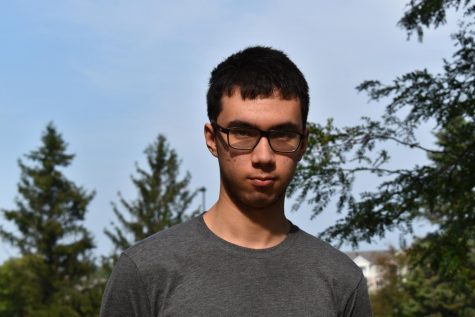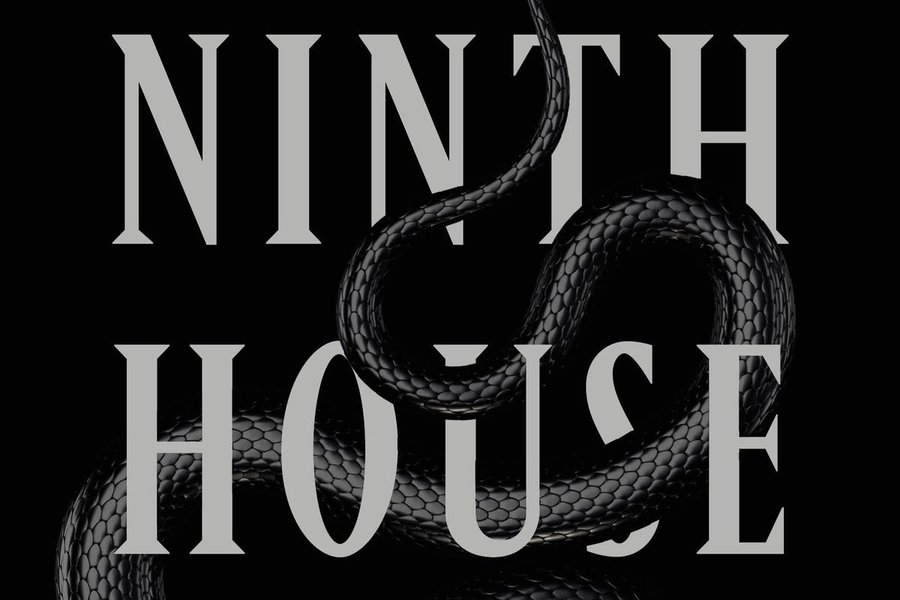Book review: “Ninth House” is an invigorating paranormal fantasy
Leigh Bardugo proves her unceasing strength as a fantasy author with her gritty adult debut, “Ninth House.”
Edward Keen ’20 reviews “Ninth House” by Leigh Bardugo, an excellent mix of fantasy and the paranormal.
Leigh Bardugo is no stranger to producing a good, well-rounded fantasy novel. The “Six of Crows” duology, “Shadow and Bone” trilogy, and incomplete “King of Scars” duology (all taking place in her self-created fictional world, the Grishaverse) put her up with Sarah J. Maas, Cassandra Clare and other modern Young Adult fantasy innovators.
Enter her ninth book: “Ninth House” Gone are the wide-sweeping fictional kingdoms and eye-popping magic. In their place is a story set in the real world with magic being used by renowned alumni to exploit the Stock Exchange and for personal gain, all against a backdrop of murders and paranormal activity. Yet, despite the comparatively new terrain that Bardugo is exploring, “Ninth House” is every bit the hit that her other works are: invigorating, fresh, and full of excellent characterization, despite a plot that meanders at time and a disappointing finale.
“Ninth House” begins with a bang, as our main character Alex Stern attends a ritual at one of the houses of Yale. There are eight main houses, each one of which uses the nexus of magical power at New Haven in different ways. Alex is part of Lethe, the ninth house in charge of monitoring all magical activity. During the ritual, Alex, who can see ghosts, notices unusual activity between the Veil that keeps ghosts anchored to their own dimension; that very night, a murder takes place in town. Alex investigates the origins of the killing and unravels the increasingly disturbing activities in New Haven.
If there’s one thing you know you can always expect from a Leigh Bardugo novel, that is brilliant characters. “Ninth House” is no exception. With Alex, Bardugo creates the ultimate underdog. Alex’s backstory is told in fragments spliced at the end of several chapters, and it’s appalling; we learn that her ability to see ghosts, including an encounter where a ghost attempted to rape her when she was young, has torn her apart from society. As a result, she descended into a drug ring and dropped out of school. When she appears first in “Ninth House,” she has been given an opportunity to redeem herself by becoming part of Lethe. Alex goes through so many incidents in the story and is constantly battered, all to the point that it is hard not to pity her. But that is where Bardugo flourishes the most, making her someone whose fierceness to forge a better life and gruff exterior imbue empathy but not so much that she is someone to only be pitied.
Another protagonist in the story, Daniel Arlington (Darlington), is a higher-up undergraduate in Lethe who mentors Alex in flashbacks to the fall a few months earlier. Darlington on surface level is a righteous protagonist, a gentlemanly patron to helping those in need despite his fortune he took from his estranged rich parents. Indeed, in the few chapters we get in his perspective Bardugo starts to build a good character out of him. The problem? He is missing for nearly the entire book due to an event that took place in the fall that led to his “death.” Unfortunately, the mystery of finding Darlington gets sidelined in the strings of the murder mystery, ghosts, and retelling of Alex’s backstory.
There are more side characters, of course, who have their show-stealing moments. I won’t rundown every one of them, but needless to say Bardugo makes them realistic, relatable and occasionally as compelling and haunted as Alex.
In the acknowledgements, Bardugo states that she wrote the world based on her real experience as an alumni of Yale. This could not be more clear. The writing is thick with lustrous description of the cluttered avenues and buildings one could see at Yale. It creates the effect of actually being on campus and following the characters from an omniscient perspective. The inclusion of stark magic and ghosts to a real-world setting only makes her worldbuilding more opulent. Aside from her imagery writing, her prose throughout the book is another win; it’s not too dense to churn through but not so oversimple that it doesn’t challenge you. If you have read anything by Bardugo before, it is written in a way that is closer to stylistic prose of “Six of Crows” than the more held-back “Shadow and Bone.”
The plot has its ups and downs. The whodunit mystery is pretty standard fare, with clues being scattered little by little on each page until the list of suspects becomes larger and larger but not confusing enough to be unable to sift through who did what. Bardugo isn’t afraid to tinker with as many fantasy elements at her disposal as she wants, nor is she afraid to siphon occasional horror as Alex visits the houses for information. Where everything begins to falter is by the third act, where everything Bardugo has been building to crumples in on itself and in an attempt to flatten the rough edges of the story, she introduces a poorly executed twist villain. Another issue is that “Ninth House” is too fast-paced without enough breathing room. The length of the novel, about 450 pages, is practically perfect but what goes in those pages could have been tinkered at times.
“Ninth House” has received its share of controversy before release with readers who had been given advanced copies warning fans of trigger warnings and many graphic scenes. While these allegations are overblown, “Ninth House” has its moments that sensitive readers or anyone averse to bloodshed or sex might want to stay away from.
“Ninth House” may not be for everybody, but anyone with a taste for an unputdownable book that slyly features paranormal, horror, and fantasy elements set against a real-world background and featuring a sophisticated heroine should give it a read. For now, the countdown for the inevitable sequel has begun.
Grade: A-
Your donation will support the student journalists of West High School. Your contribution will allow us to purchase Scholarship Yearbooks, newsroom equipment and cover our annual website hosting costs.

Edward Keen is a senior and this is his second year on staff, where he is Arts Editor. In his free time, he enjoys reading.



